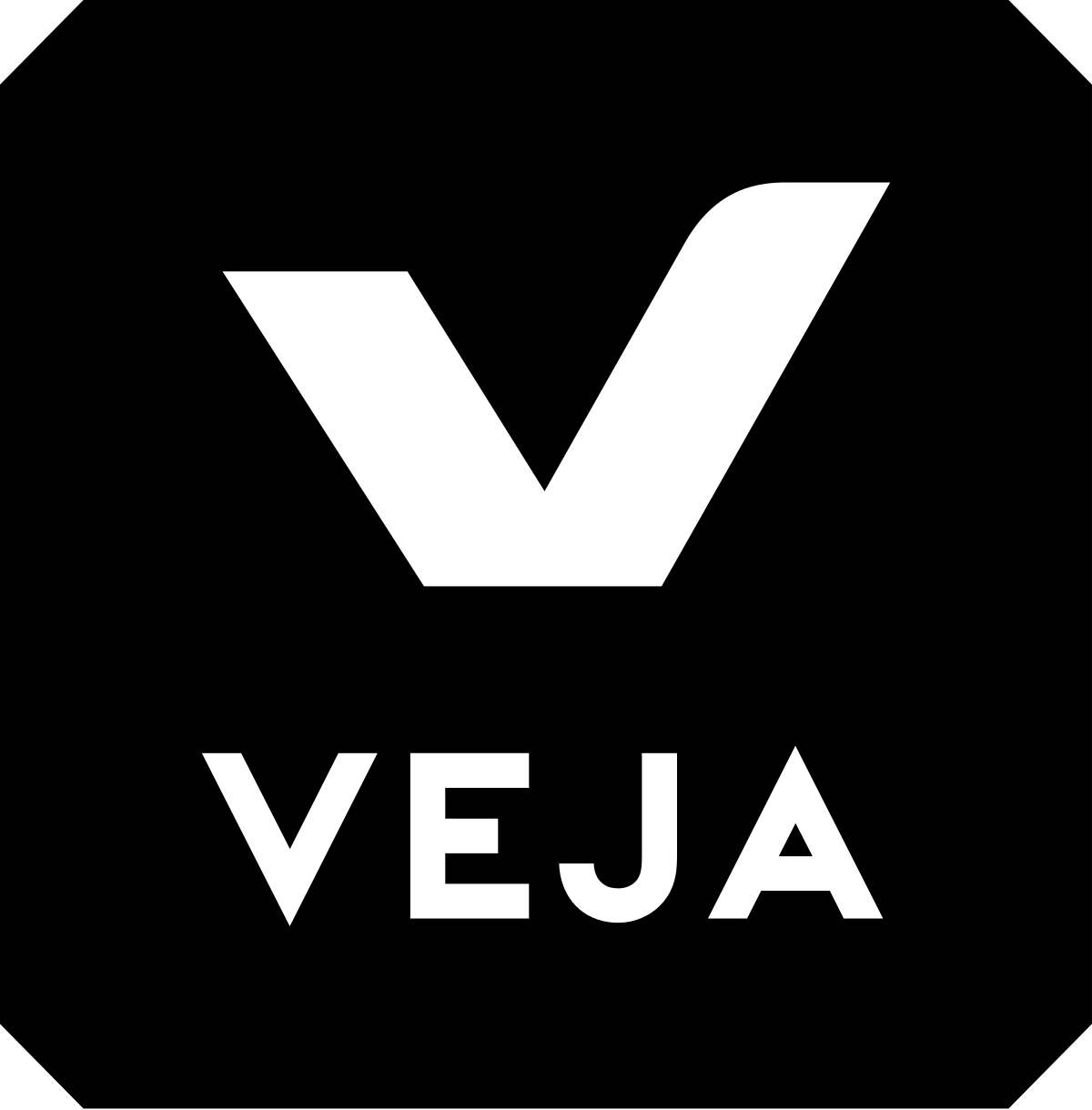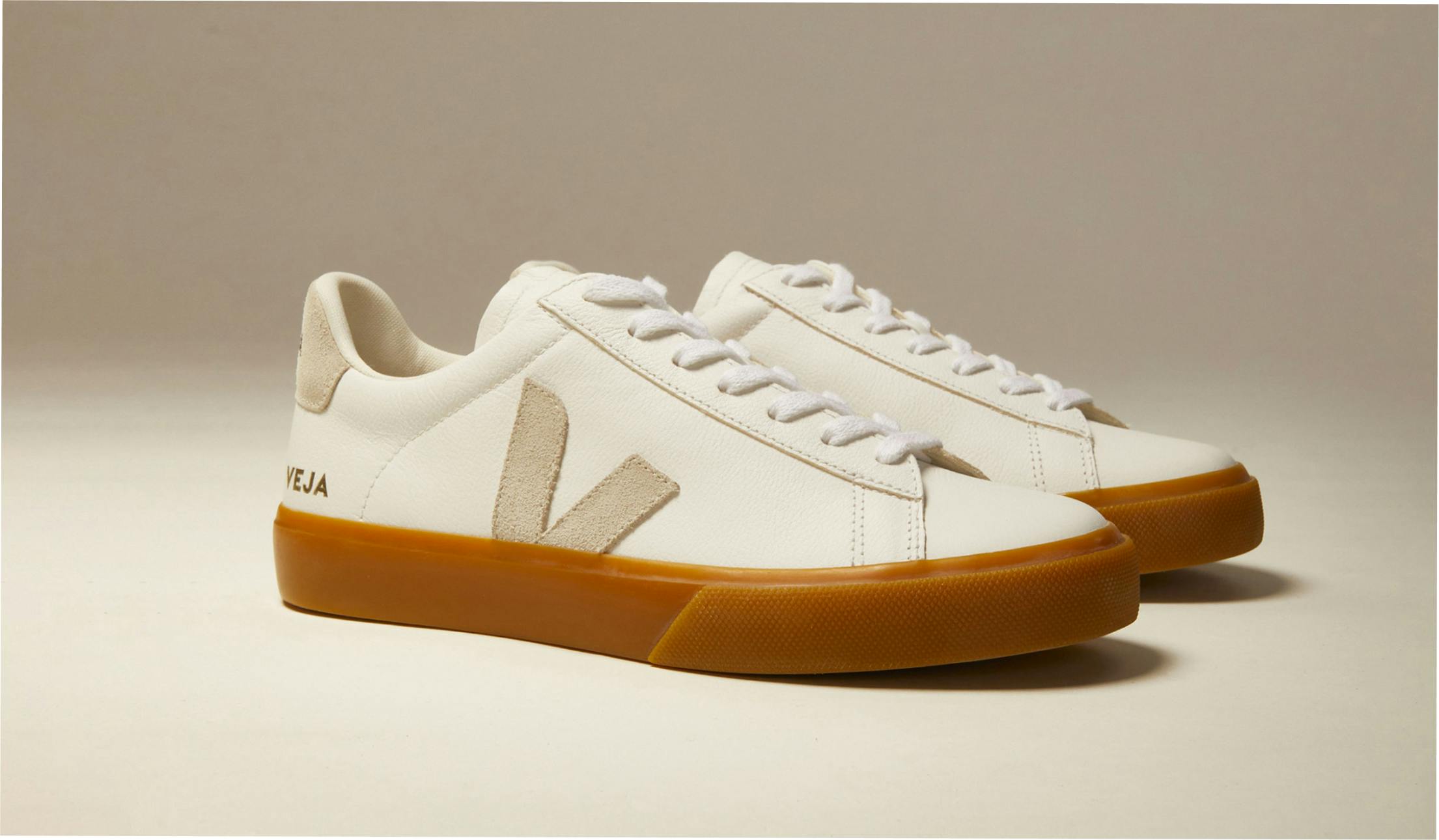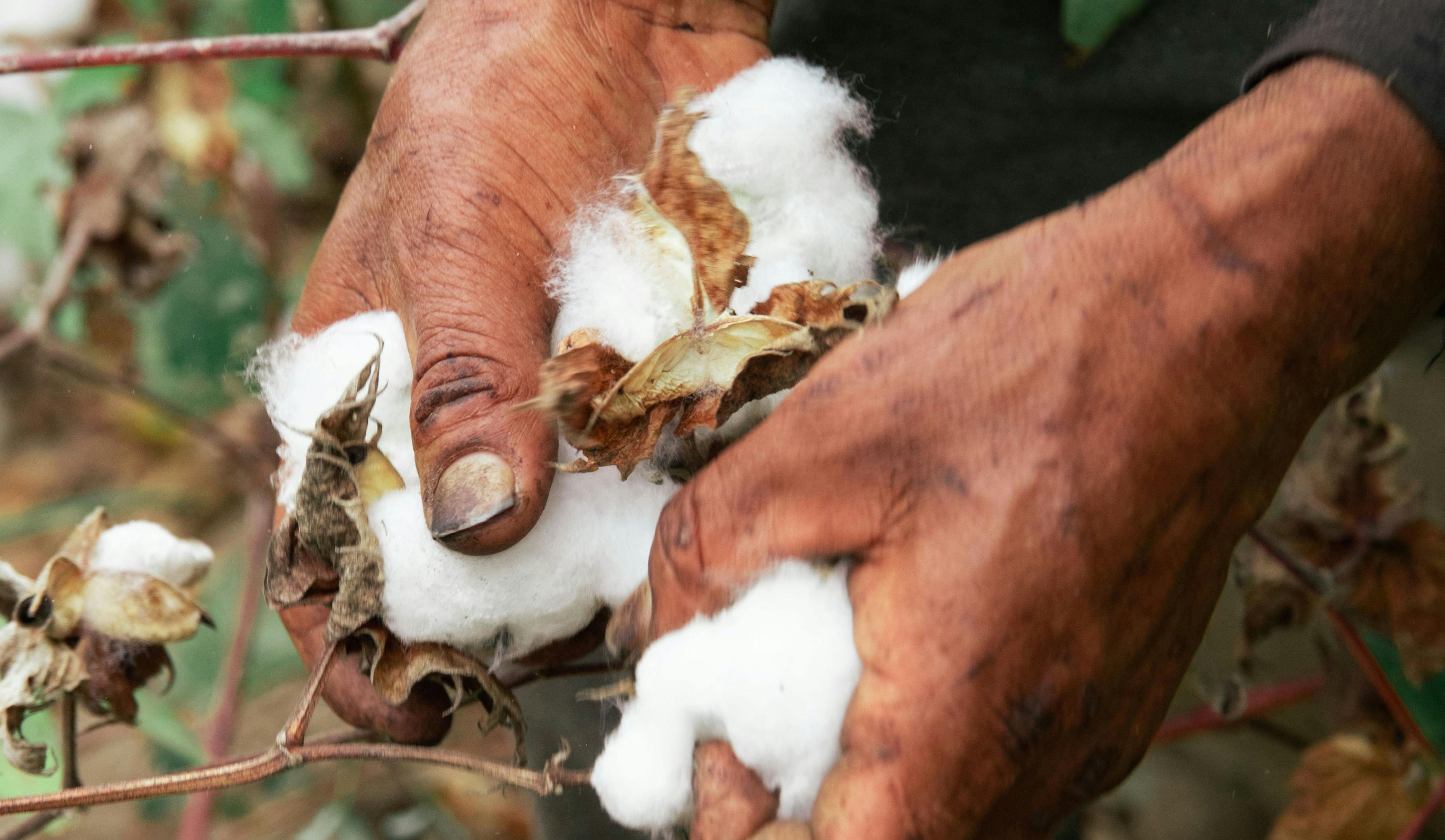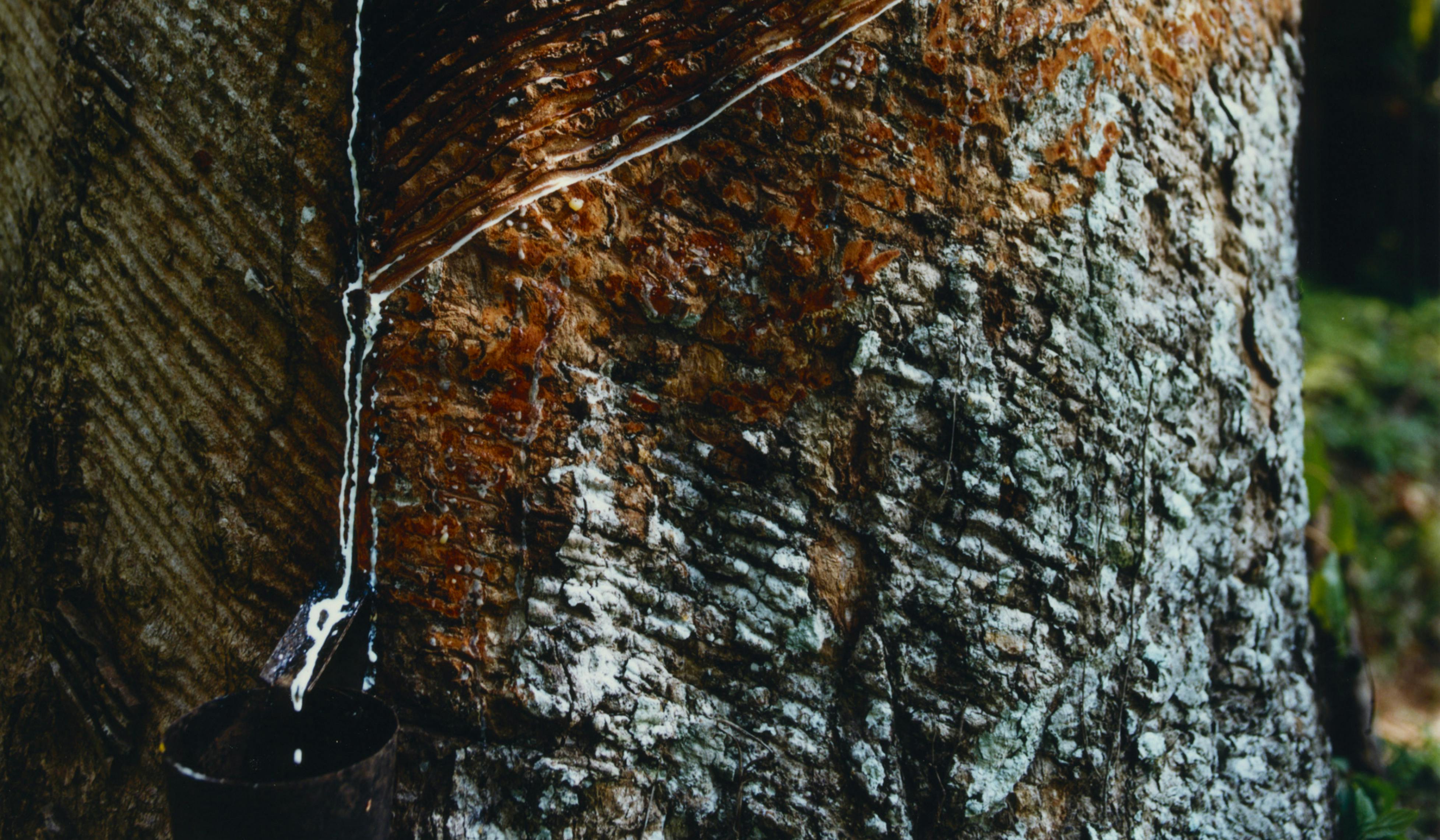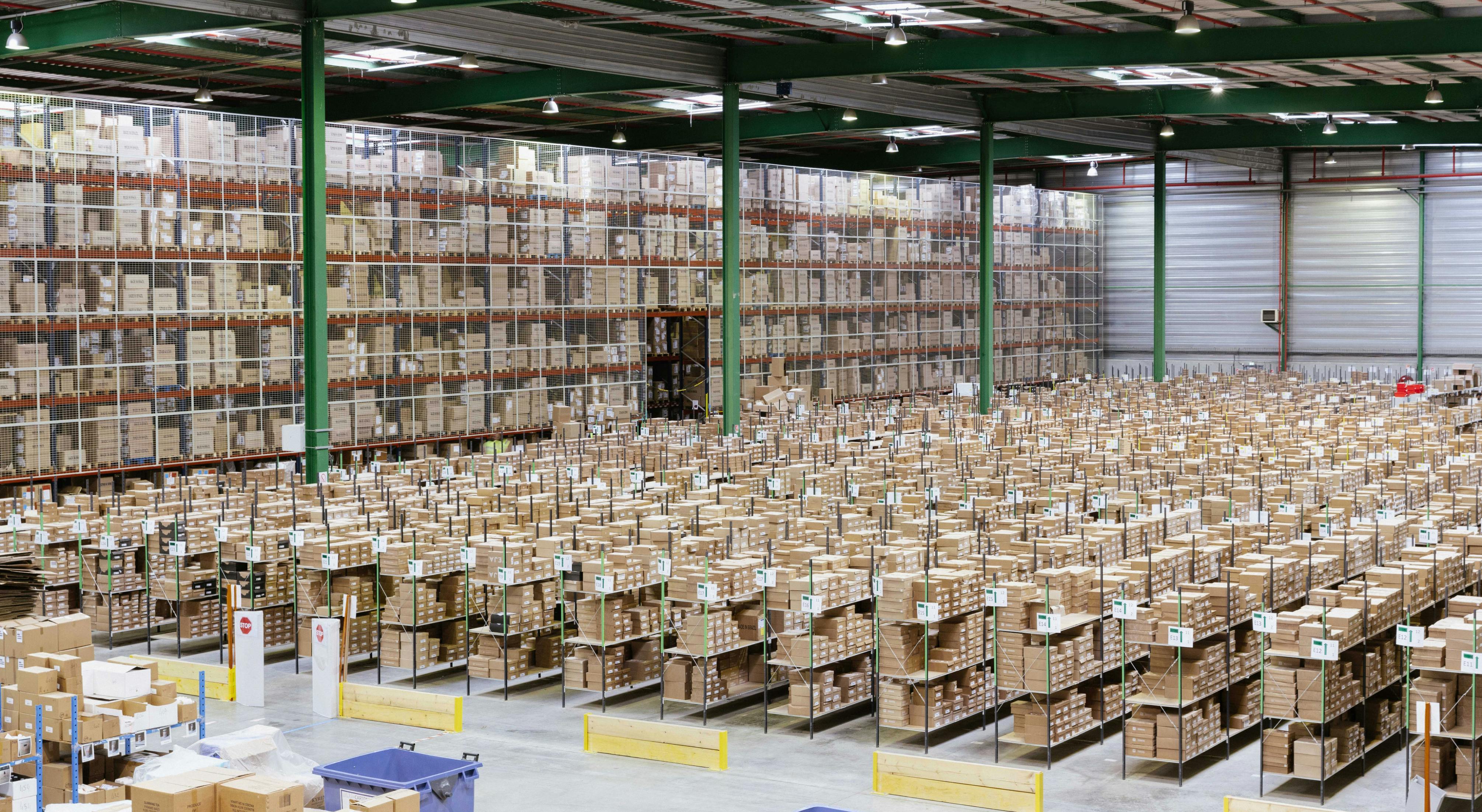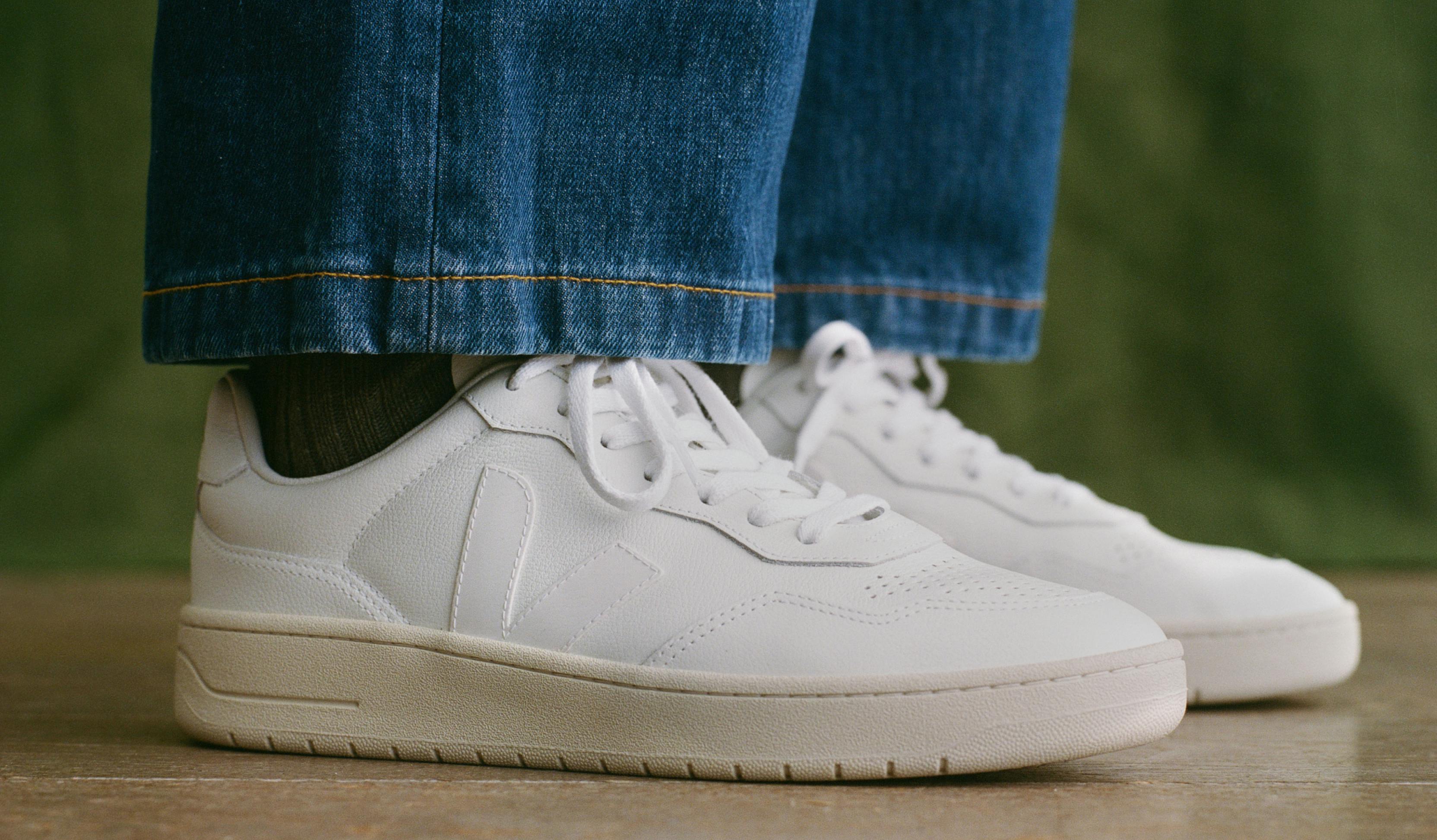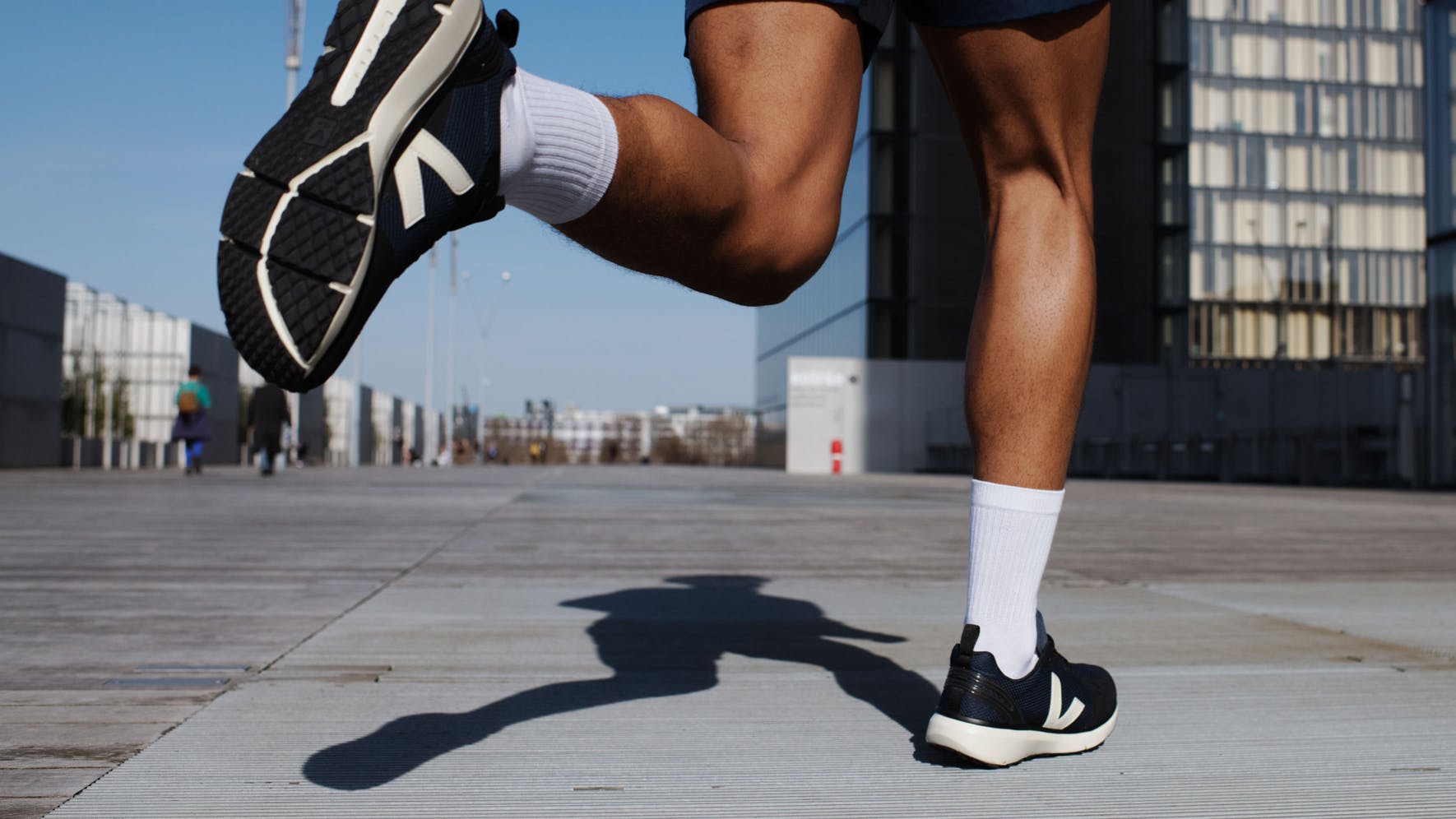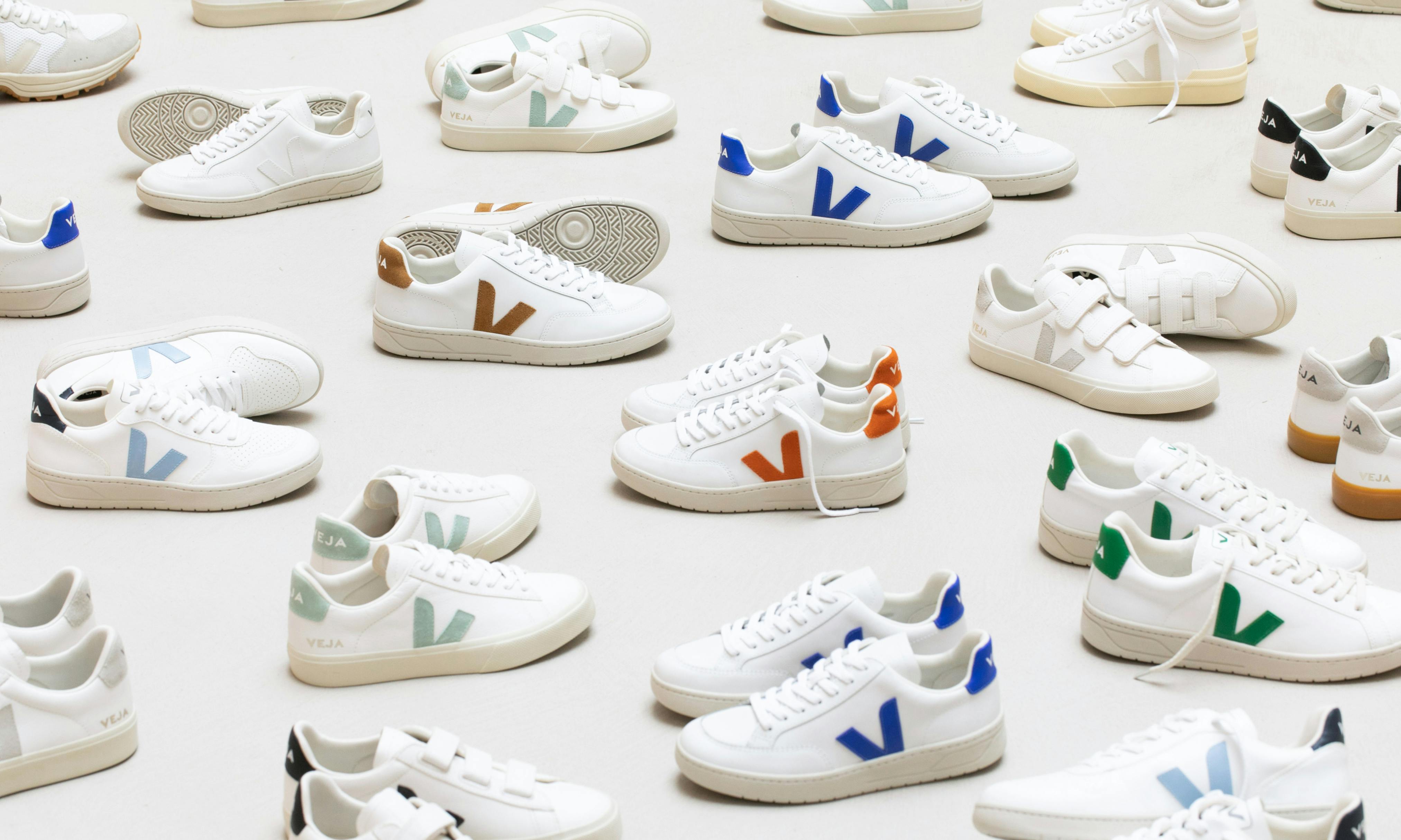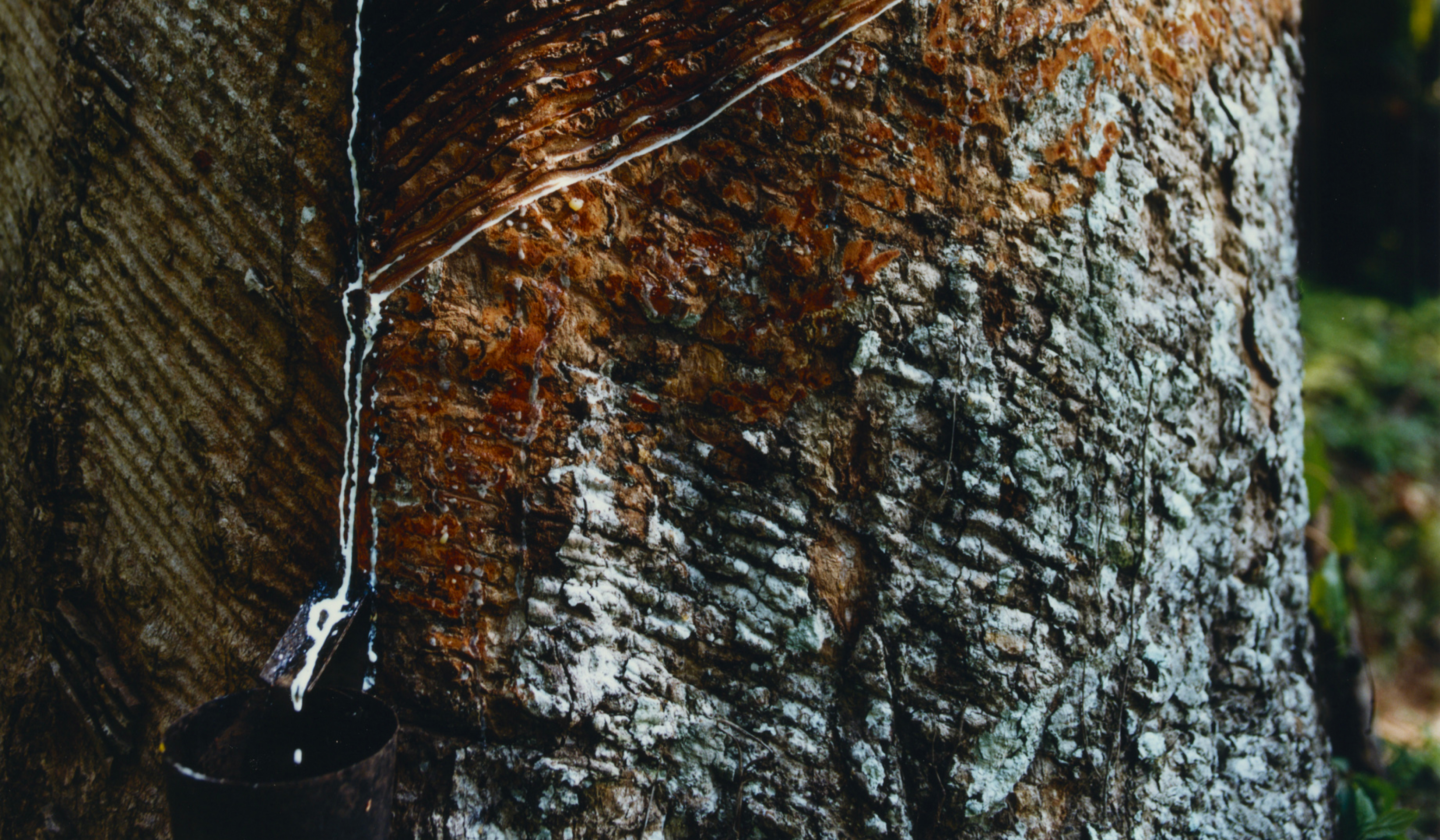
Rubber
«At first, I thought I was fighting to save rubber trees...
...then I thought I was fighting to save the Amazon forest. Now I know I'm fighting for humanity.»
— Chico Mendes, is a leading activist in the struggle to protect the Amazon forest. Assassinated by landowners because of his beliefs.
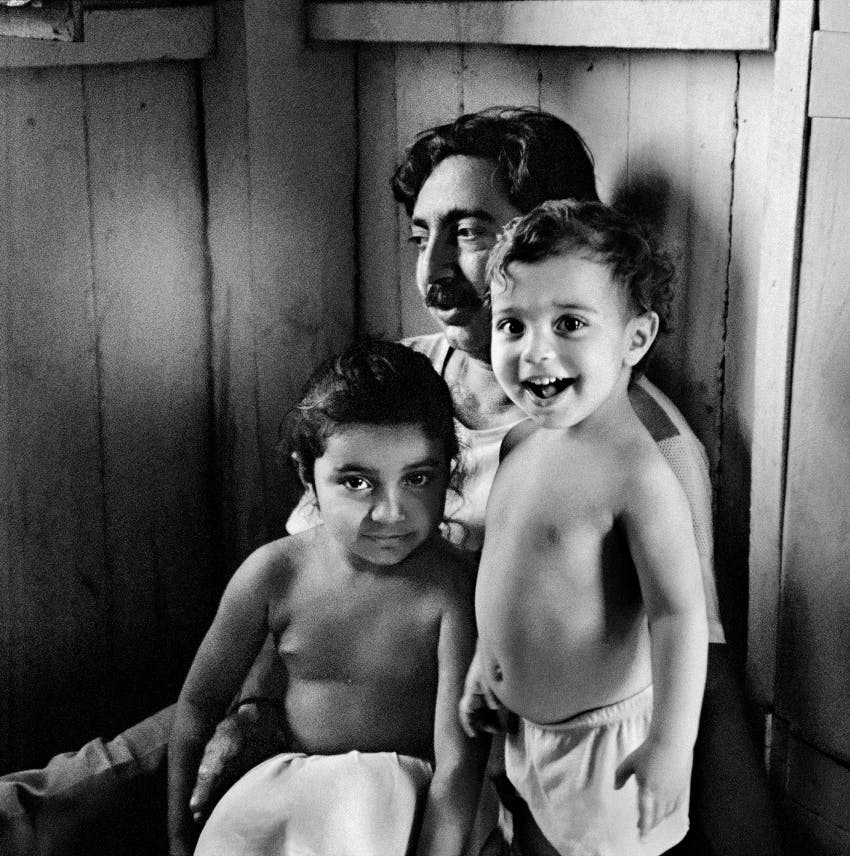
Chico Mendes
Xapuri, Brazilian state of Acre, 1988
©Miranda Smith, Miranda Productions, Inc.
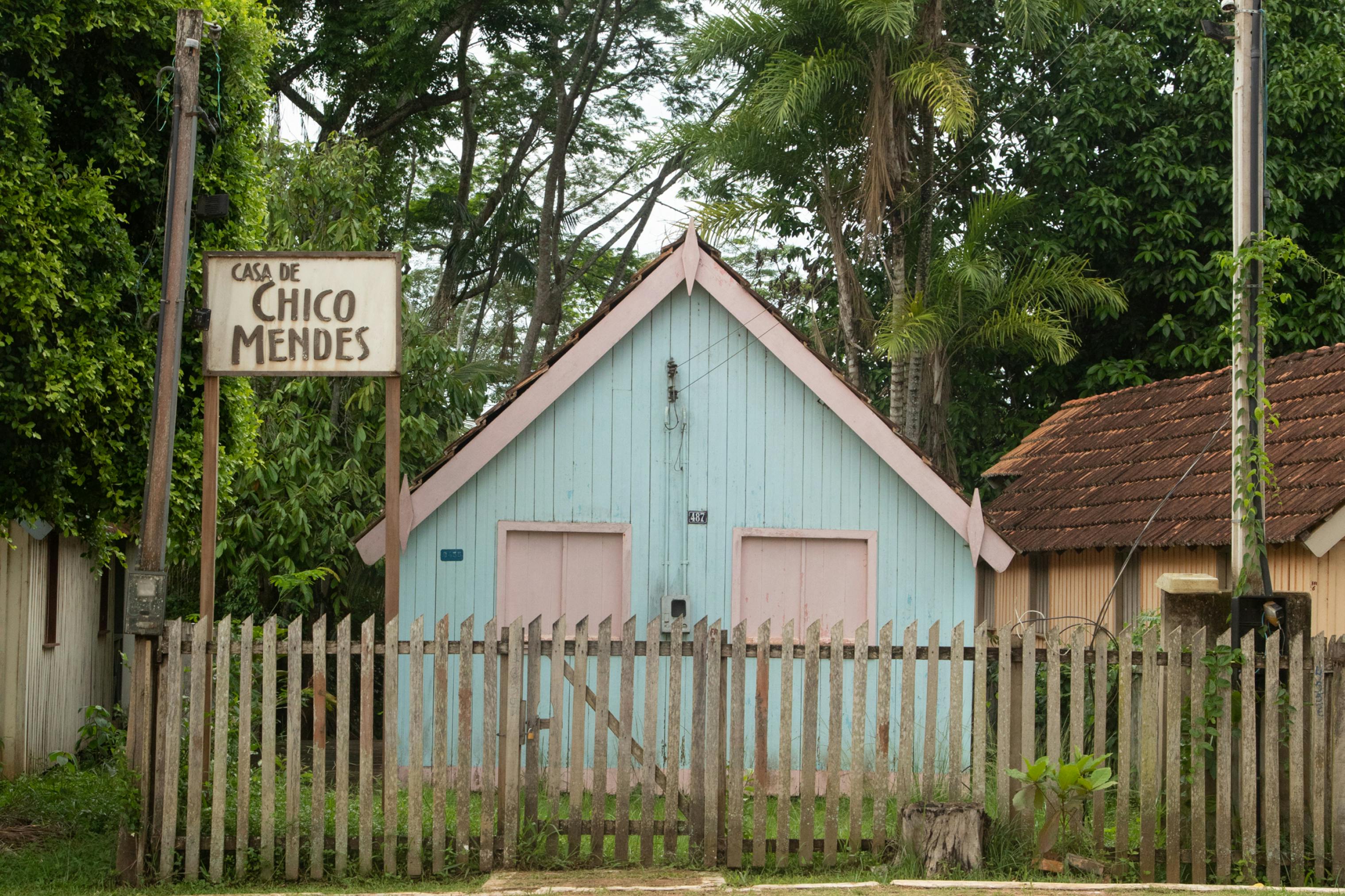
House of a seringueiro family
Chico Mendes Extractive Reserve, Amazon, 2021
©Studio VEJA
One of the main raw materials for VEJA is Amazonian rubber.
More than 3 587 tons of Amazonian rubber have been purchased from 2004 until the end of 2024.
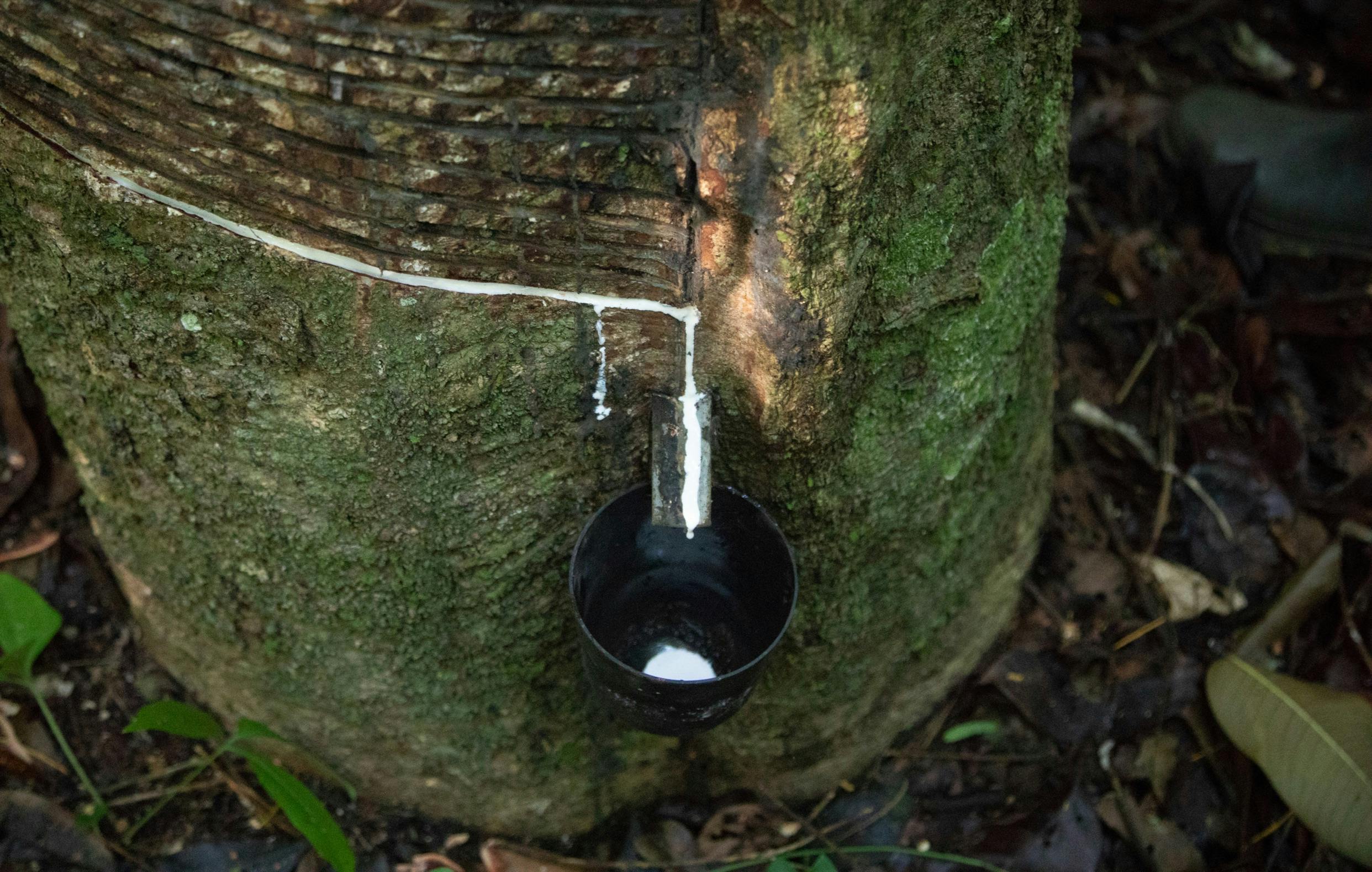
Amazonian rubber
@ Studio VEJA
The price paid by VEJA per kilo of CVP (semi-processed rubber) is 3.5 times more than the market price.
Today, the market price per kg of CVP (semi-processed rubber) is R$3,50.
VEJA paid a total of R$ 16,10 to rubber tappers in 2022.
This price includes a bonus for quality and Social and Environmental Services (PSES).
As part of Fair for Life certification, associations and cooperatives receive an additional bonus of R$0,60 per kg of CVP (semi-processed rubber) produced in 2022 to invest in development projects.
This rubber was certified in 2019 thanks to the support of VEJA to improve the living conditions of the rubber tappers and protect the Amazonian forest.
Our goal is to enhance the economic value of the forest in order to protect it.
Our rubber has been certified Fair for Life in 2019 thanks to VEJA's support to continue improving the living conditions of rubber tappers and ensure the protection of the Amazon rainforest.
Fair for Life is a certification program supported by Ecocert. For 30 years, Ecocert has been supporting organizations through training, consulting, and certification.
The "Fair for Life" standard guarantees, among other things, long-term and direct trade relationships, fair prices, good working conditions, and the prohibition of forced labor.
In 2022, 22 associations and cooperatives with which VEJA works in the Amazon rainforest were certified.
By supporting producer families, we guarantee the quality of the materials we use in our sneakers and provide them with good working and living conditions.
Amazonian rubber bought by VEJA
(kg per year)

Welcome
to the jungle
VEJA team trip to the Chico Mendes Reserve.
©Video Studio VEJA
The Amazon is the only place on Earth where rubber trees grow in the wild.
 tweet this quote
tweet this quote In the Brazilian state of Acre, the seringueiros, rubber tappers, harvest the rubber used in VEJA soles.
The seringueiros live in the forest and depend on it for survival.
During rubber season between April and November, they make their way through the forest.
They have the authorization to tap the rubber trees following a path only they know.
This circuit allows the trees to regenerate. On average, each seringueiro harvests 400kg of rubber per season.
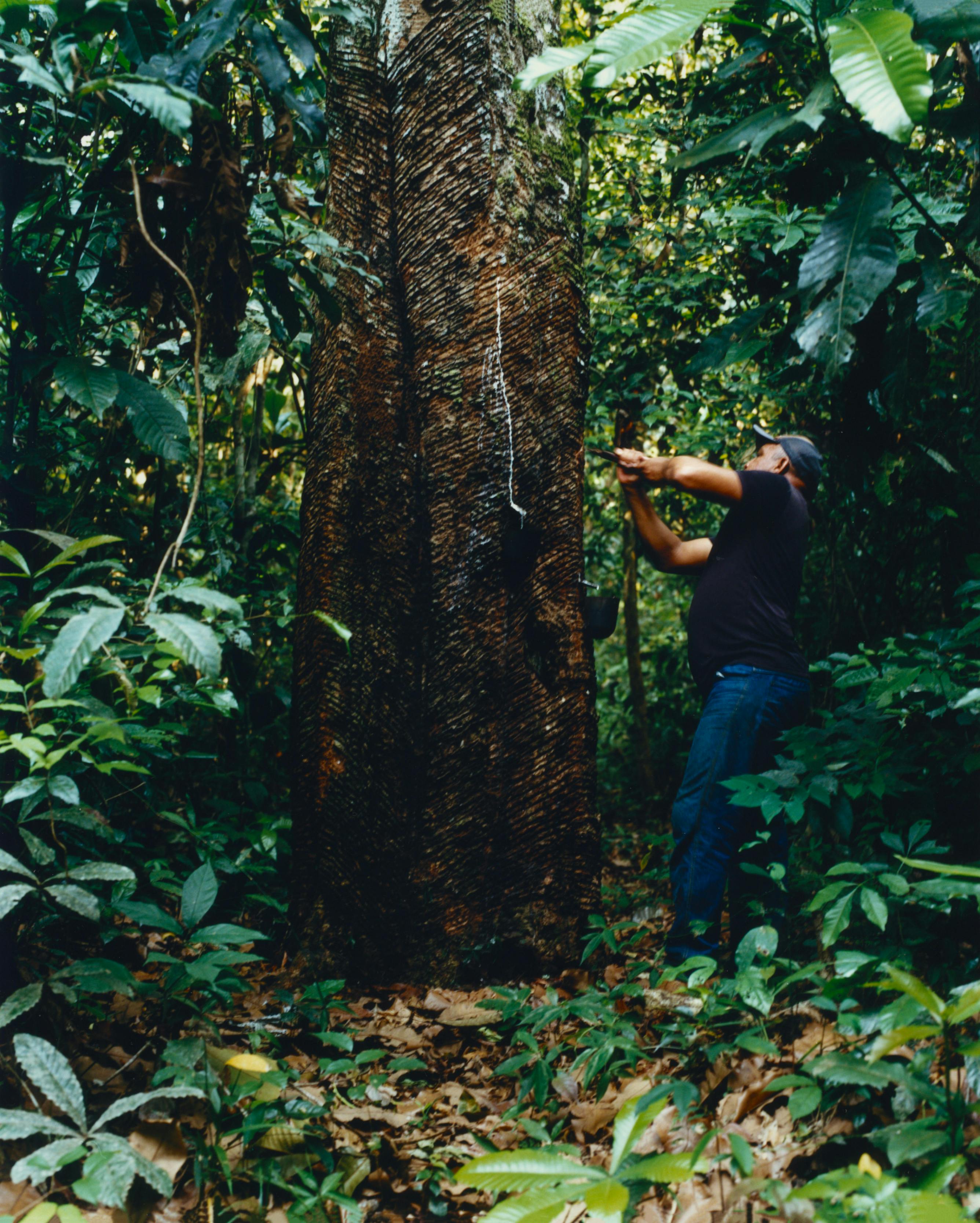
Seringueiro tapping rubber tree
Amazon, 2021
©Studio VEJA
Since 2007, VEJA has been working with Amopreab, which coordinates rubber production and pays the seringueiros in the Chico Mendes Reserve.
Today, more than 2800 families represented by 22 associations are part of our project.
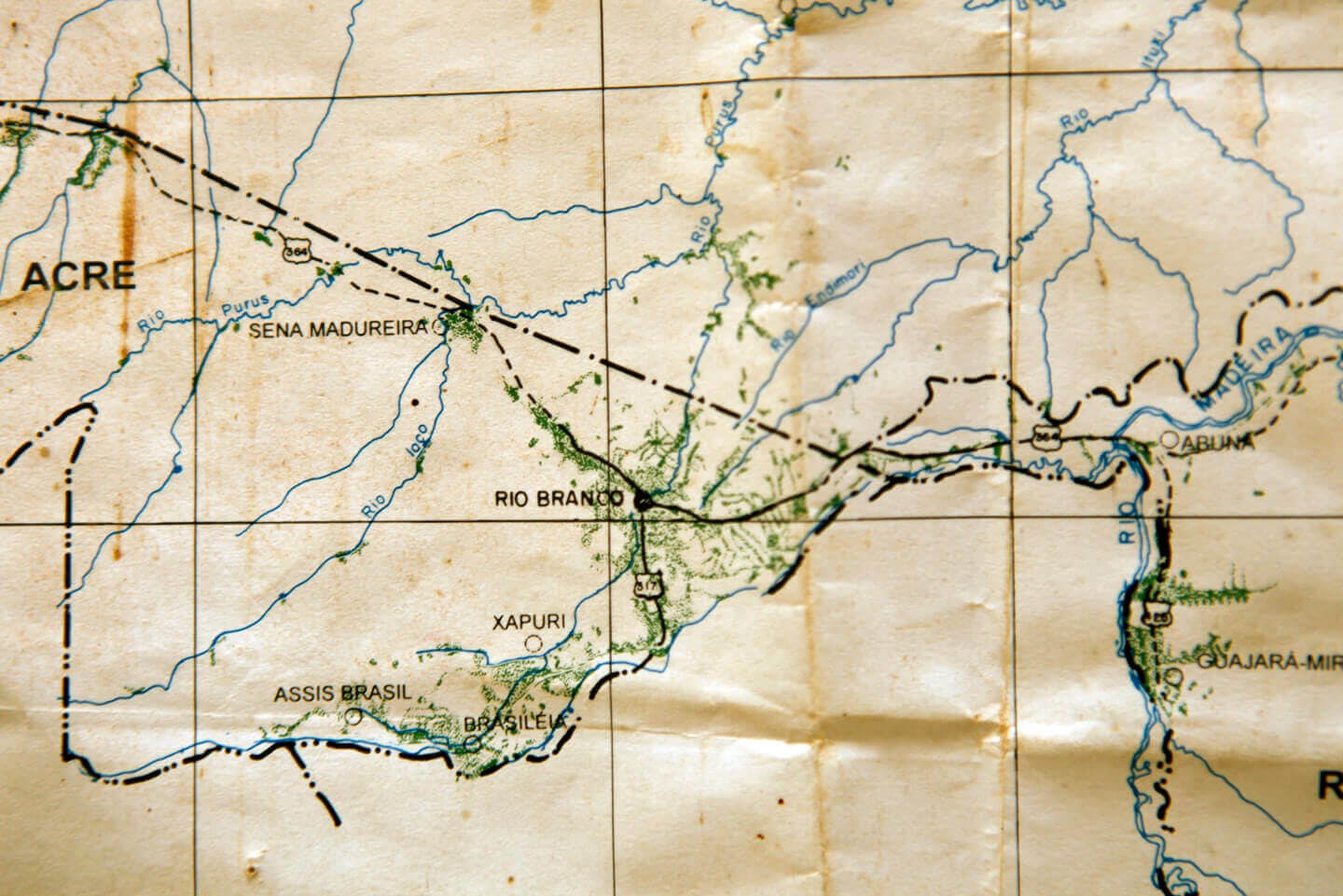
In 2019, VEJA started to work with Partnership For Forests (P4F), a British fund that supports forest conservation.
Through P4F, we developed a set of principles to help forest conservation as part of a Protocol for Sustainable Rubber.
We joined forces with 200 new producer families.
Introducing a monitoring system to track deforestation rates and offering bonus payments to incentivize conservation of the Amazon Rainforest.
Thanks to this new protocol, VEJA guarantees that the rubber comes from a responsible source and helps those producers to have a higher income. (source: UFAC study in the RESEX Chico Mendes)
Sebastião dos Santos Pereira: the kid of the forest to being responsible for rubber production at VEJA
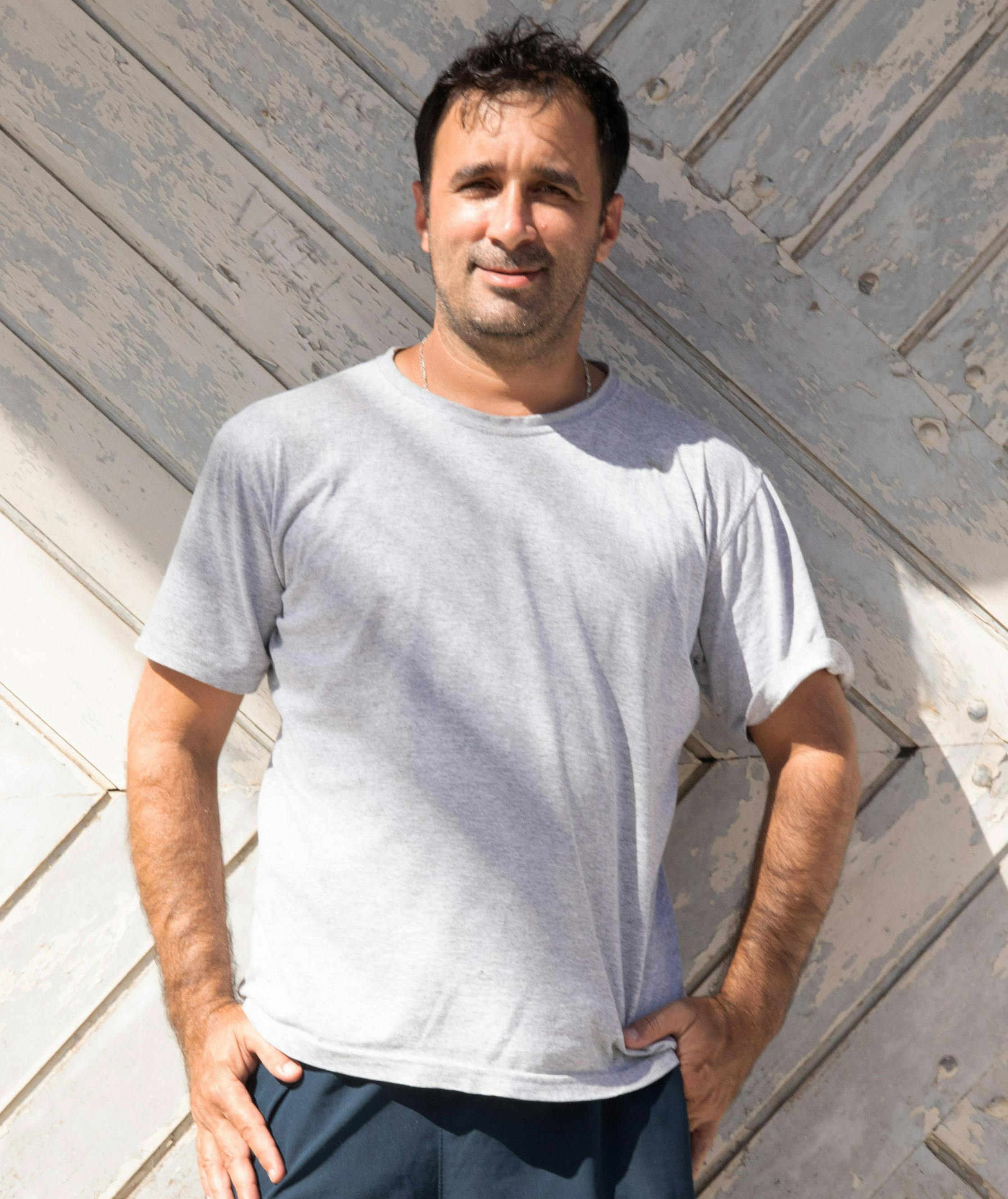
Sebastião dos Santos Pereira
© Studio VEJA
Sebastião grew up in a community in the Amazon, watching his father working as a rubber tapper. When he turned 25, Sebastião started his studies as a Forest Engineer and graduated in 2015.
Since 2017, he is part of the VEJA’s team. He is now in charge of VEJA’s Amazonian rubber supply chain.
Sebastião continues to contribute to raising awareness about cattle farming in the forest while giving a better livelihood to those who live in it.
Today, VEJA works with more than 2800 families of seringueiros (rubber tappers) who harvest native rubber thanks to Sebastiao's daily work in the field.
Together with his team, they discuss and find ways with the farmers’ representatives how to achieve the right value for both producers and cooperatives, all according to fair trade principles.
Raimundão: a rubber tapper, a great leader, and the cousin of Chico Mendes
Raimundo Mendes de Barros, known as Raimundão, born in 1945 in Seringal Santa Fé, in the municipality of Xapuri, in the state of Acre.
Raimundão is a rubber tapper, a great leader, and the cousin of Chico Mendes. He participated in the whole movement for land rights in the 80s, together with Chico Mendes and his companions.
During that period, a surge of landowners seized rubber tappers' lands for cattle ranching, leading to Chico Mendes' death and the establishment of Extractive Reserves.
At 76 years old, Raimundão says that the knowledge he has today is a mirror of his father. During his childhood, his father always told him that he should never destroy the forests and only plant the fields according to his needs.
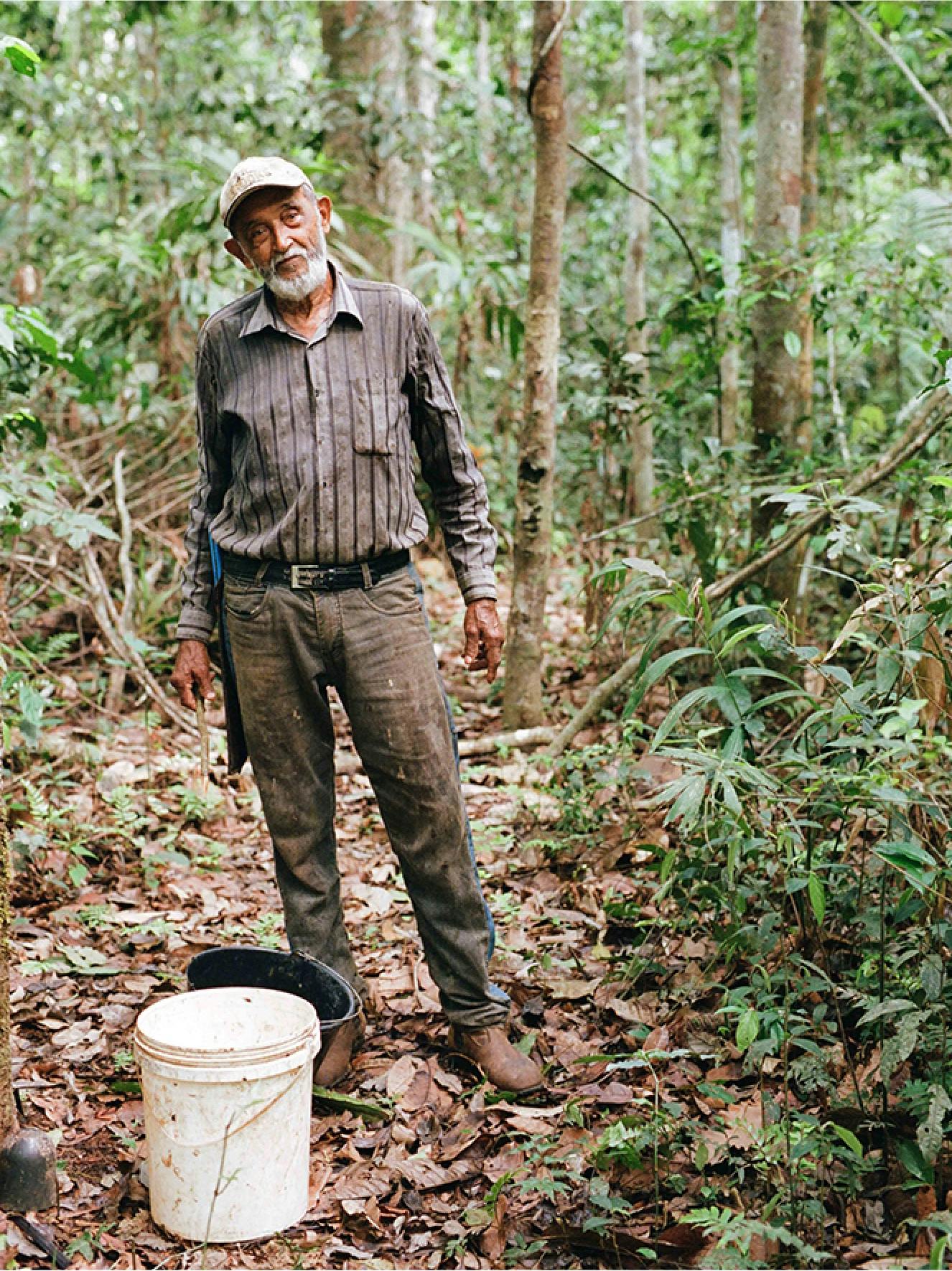
Raimundão Mendes de Barros
Chico Mendes Reserve
©Studio VEJA

